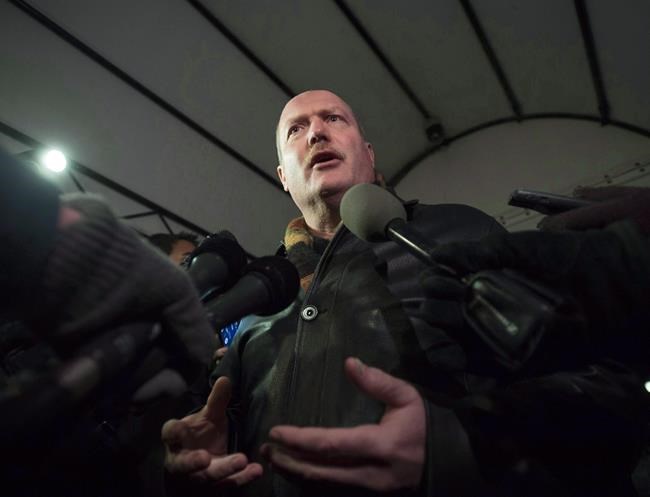 It’s not clear yet whether opposition B.C. Liberal MLA Mike de Jong is on to something.
It’s not clear yet whether opposition B.C. Liberal MLA Mike de Jong is on to something.
But it is clear that he’s intensely suspicious of a recent change in the authority the government has given itself when it comes to using personal information from citizens for various purposes.
Given recent developments around the world involving some of the giant social-media sites, who wouldn’t be?
De Jong spent some time this week probing the thinking behind the NDP government’s “draft outline of a digital strategy for the throne speech,” which was prepared by the Government Communication and Public Engagement division.
The strategy included obvious measures such as summing up the key messages of the throne speech and generating web traffic from social platforms. But other measures aren’t so obvious, such as the data-capture element. Citizens could sign up to participate in budget consultations, and the site would be adapted after the throne speech to enhance the existing message with later budget details.
“What seems to be happening here is an attempt to collect data with respect to the throne speech and use it for an entirely different purpose,” said de Jong.
That’s an entirely likely possibility, but in government there are rigid privacy considerations and oversight mechanisms designed to ensure it’s only for legitimate reasons.
He suggested the following scenario to Citizens’ Services Minister Jinny Sims: Public-engagement staff are embarking on a specific strategy of collecting information for one purpose — the throne speech — and then ensuring there will be data capture, “a call to action” and a sign-up to participate in budget consultations later.
That might be just another expansion of government’s determination to broaden online consultation.
But de Jong, with vivid personal experience as a former minister, said the division is a particularly political animal.
“GCPE will hover closer than any other branch of government to the edge of partisan activity. They’re going to try and present the government in the best possible light. But apparently, they’re going to do it by using information, data, collected for one purpose and use it for another.
“I am suspicious [about] what I think may be taking place within GCPE and the use they are making of the new digital and analytical tools that exist.”
That’s as far as he went with specific allegations. But it doesn’t take much imagination to conjure up potential problems with such an approach.
De Jong’s suspicions kicked in during debate two weeks ago about four ministerial orders that Sims signed in February. One of them designated GCPE as a “common program,” which has a certain meaning under information-privacy law. It also authorized it to collect information on personal identity, personal opinion, IP addresses, audio recordings, and photo or video images.
De Jong had several questions about how much range the division has to collect and use personal opinions and identity information. Sims said it’s limited only to people who engage online.
The order was signed months after the digital strategy kicked into gear, which heightened his suspicions.
But Sims said: “It’s not like an open game or that you pick this up and you can start sharing everything. They are very, very heavily restricted by legislation.”
Sims said the “common program” designation was introduced in 2015, to ease the cumbersome administration load. The order just confirms the constraints on use of data.
So she signed the orders on the advice of the information and privacy commissioner and legal services.
She provided an example. The Forests Ministry has a Facebook page, so if someone gives input to the government on that page, the order allows Government Communication to share their information back with the ministry.
“It’s not for people to go and do surveillance.”
Her reassurance is heartening, but Facebook CEO Mark Zuckerberg spent some quality time a few weeks ago testifying before the U.S. Congress about the Cambridge Analytica scandal, Russian election interference and the standing joke that is his corporation’s privacy policy. That’s got nothing to do with B.C., but it’s likely in the back of de Jong’s mind.
He thinks the NDP intends to expand its information collection, use and disclosure policies in a host of different forums.
Sims promised to give de Jong a privacy-impact study shortly. It’s unlikely to ease Liberal suspicions about NDP online data-analytics ambitions.



